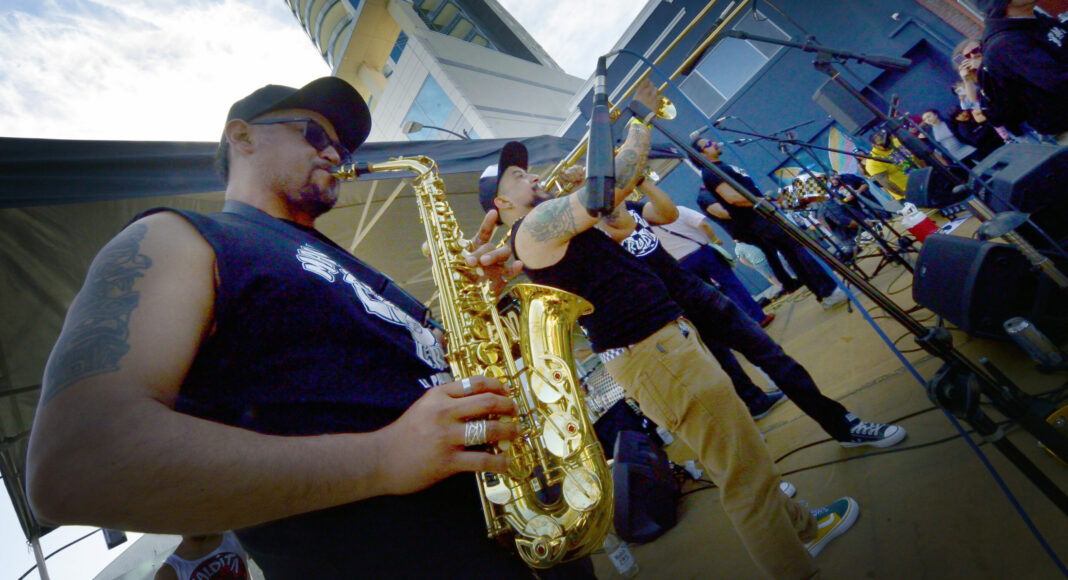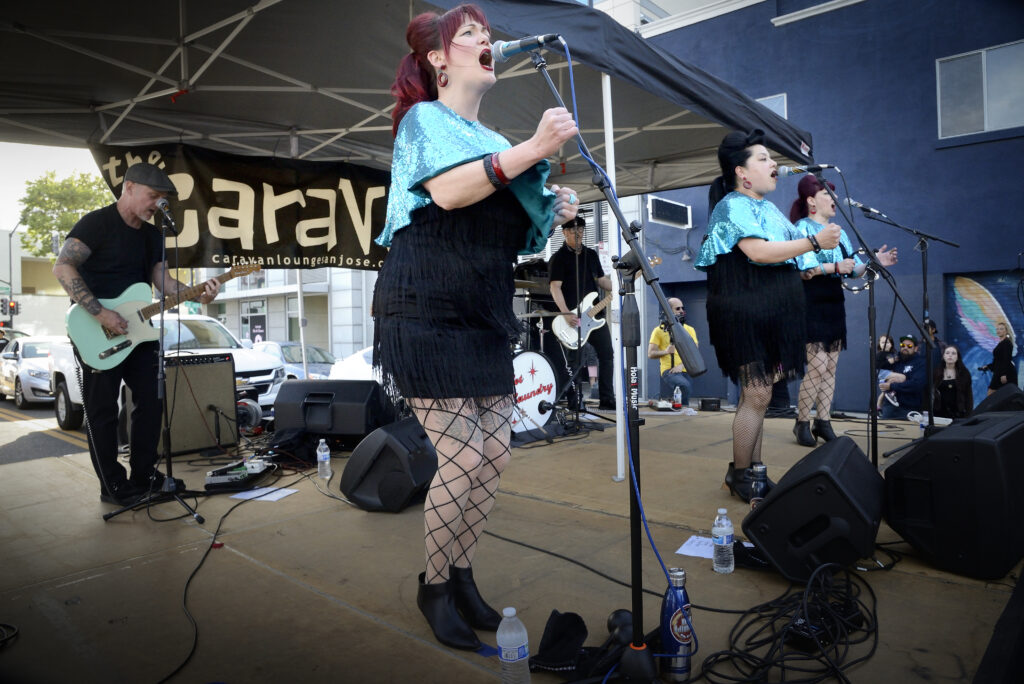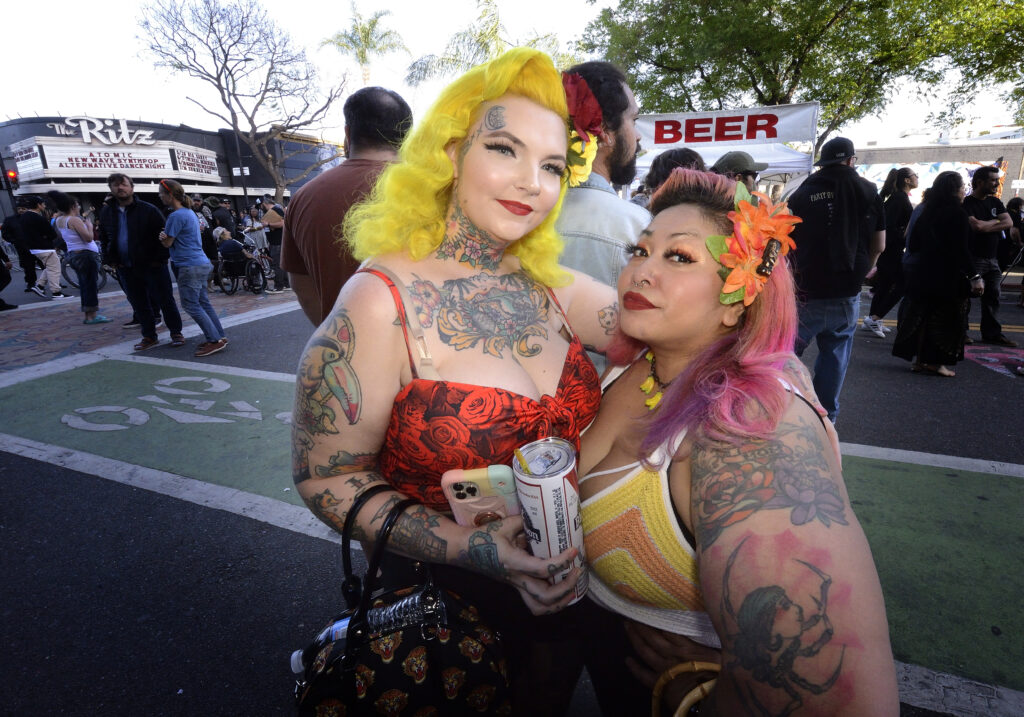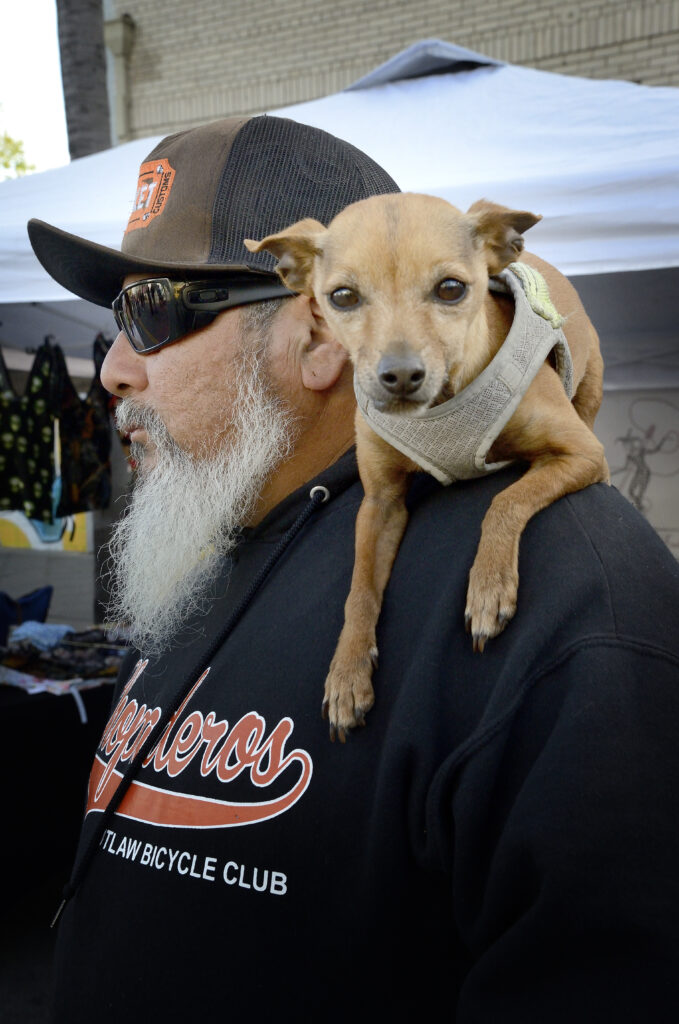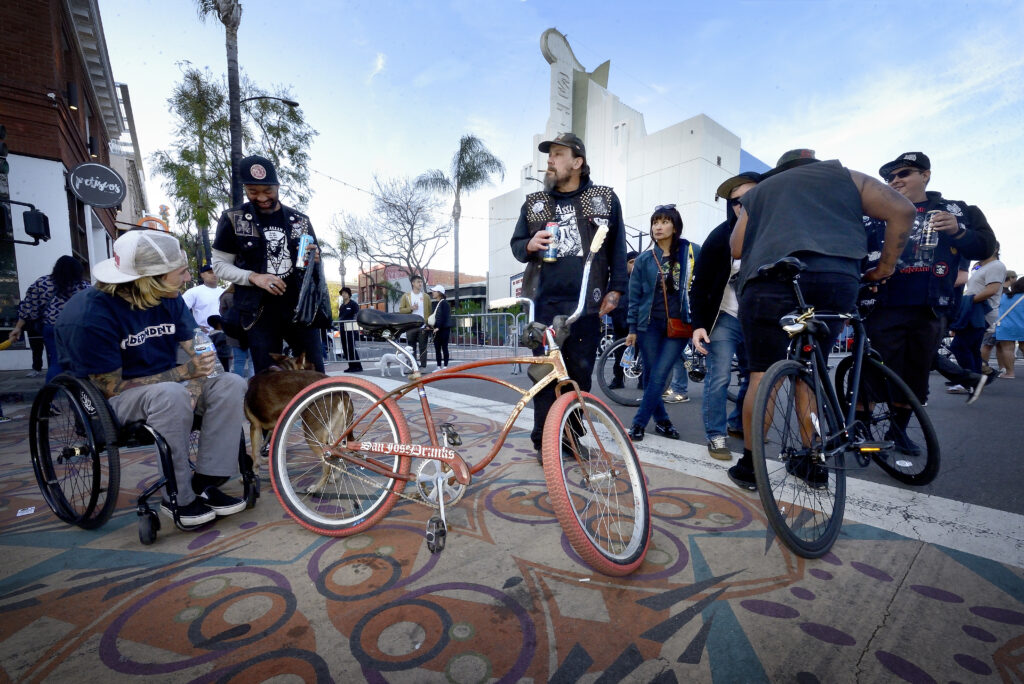The vibrant multigenerational family event known as the SoFA Street Fair erupted yet again last Sunday, bringing music fans of all ages to downtown San Jose.
Since I am a big fan of history, a quote from historian David McCullough was in my head for the entirety of the festival: “History is a guide to navigation in perilous times. History is who we are and why we are the way we are.”
As downtown San Jose enters its fifth decade of perpetually perpetuating, the SoFA Street Fair reminded me that live music has always been one of the most important dimensions of the neighborhood. Not real estate. Not $4,000 apartments. Not DoorDash. Not “innovation summits.” Not meat-market dance clubs with $25 cocktails, metal detectors and people vomiting all over the sidewalk. No, it was always live music that made this neighborhood a better place. Such was the case 30 years ago and apparently it was still the case last Sunday.
As I navigated the stages this time around, it was almost tear-jerking. 2023 is now the tenth season since the SoFA Street Fair rebooted itself in 2014. That means it’s been around just as long as the original festival, which lasted from 1992 through 2001. And yes, I was there. Normally I’d rant and rave in my best geezer-in-his-rocking-chair voice, pointing my cane at all the kids, and say stuff like, “I remember …” But the first few SoFA Street Fairs were more like that famous line you always hear about the ’60s: If you can remember them, well, then you weren’t there. If you know what I mean.
Now, I said multigenerational family for a reason. There were people gigging at this year’s festival whose bands I remember seeing at SoFA Street Fairs in the ’90s. And here they were again playing at this year’s fest 30 years later. In one case, two different friends whose bands I regularly watched decades ago now had kids who were playing in the same band, on stage, at this year’s SoFA Street Fair. That made the whole damn thing worthwhile. Seriously. The kids were teenagers, might I add. In bands. For crowds in the street. For free. In front of their families and more kids. Gee, what a concept.
Actually, it was even better than that. This year’s SoFA Street Fair was the most diverse one I’d ever seen. People of every demographic milled about, in the crowds and on stage. East San Jose’s finest, Firme, tore through a great set on the MACLA stage while the Death Valley Gypsies played an Iggy Pop cover down the street. That was just one random moment.
People who were in the neighborhood for other reasons also floated through. At one moment, many who’d just watched the Warriors game somewhere else came wandering through the whole festival and joined in the fun, catching whatever bands for whatever amount of moments they wanted. A few normally sketchy drug-addled street people were hanging out and dancing, no longer causing problems. Even confused opera goers managed to poke around the crowds and scope out the vendors. Nobody acted like they felt threatened by anyone else. It was simply a fantastic party.
The best thing? There were more kids than ever before, more teenage bands, and more families than I’d ever witnessed on South First Street in the daytime since I can remember. I saw more Slayer shirts holding hands with children than I’d ever seen anywhere. Even the Caravan stage was family friendly, with various activities unfolding on the pavement.
The entire day proved that if you allow kids to play in bands, and go see bands in the street, all in the same place where their parents are either playing in bands or going to see bands, then people will show up and support each other. No one in City Hall has really ever understood this in 40 years.
Of course, as I navigated the SoFA Street Fest, there was no way to avoid comparing it to the South First universe of 30 years ago. I was not the only one doing this, mind you.
The original few years were entirely analog. Nobody used email. There was no World Wide Web, no social media, no cell phones, no Spotify, no Bandcamp and no Twitch conventions. To learn about the festival, you either drank with your friends’ bands, listened to college radio, saw flyers on telephone poles, or you picked up Metro and read the music columnists and the calendar listings.
Only a few things remain on South First Street from 1992, in terms of continuously operating entities. The rest of it faded into oblivion. No more belly button piercing at Daleep’s, no more Underground Records, no more Café Matisse and no more thrift store. I can’t tell you how many bands I saw at Cactus Club that went shopping at the thrift store across the street. When people needed crappy-on-purpose $2 clothes for the disco nights, where did they go? The thrift store across the street.
That was a different era. Nowadays, pre-festival staff meetings are on Zoom. The folks schlepping equipment around aren’t half-drunk already. An event scheduling program called Sched allows anyone to login and plan ahead of time. The entire festival schedule is there, on your phone. Every band on every stage. You click on the gigs you plan to attend and even see who else has actually bothered to look through it all. It ain’t 1992 anymore.
Unfortunately, though, there will always be, and I mean always, a handful of people who exhibit a unique-to-San Jose form of cluelessness, and despite living five blocks away, will complain that the event wasn’t promoted enough, and then repeat stuff like, “Why didn’t I know about this?” These people are beyond help. Don’t even argue with them.
But before I forget, another highlight of the current-day SoFA Fests: The SoFA Drag Race. That is, drag queens racing in sofas down the street. It’s hysterical. There were no MAGA slobs or Republican bigots trying to cancel the drag queens. None of those people showed up. It made me realize all over again the potential of downtown, just like 30 years ago.
At 8pm, when the whole thing ended, I felt like a teenager again. I didn’t want to leave until the last person was gone.
The SoFA Street Fair proved, as it did decades ago, that if you prioritize music, people will bond together. The history of the neighborhood is musical. The past is musical. The present and the future will also be musical. It’s why we are the way we are.
